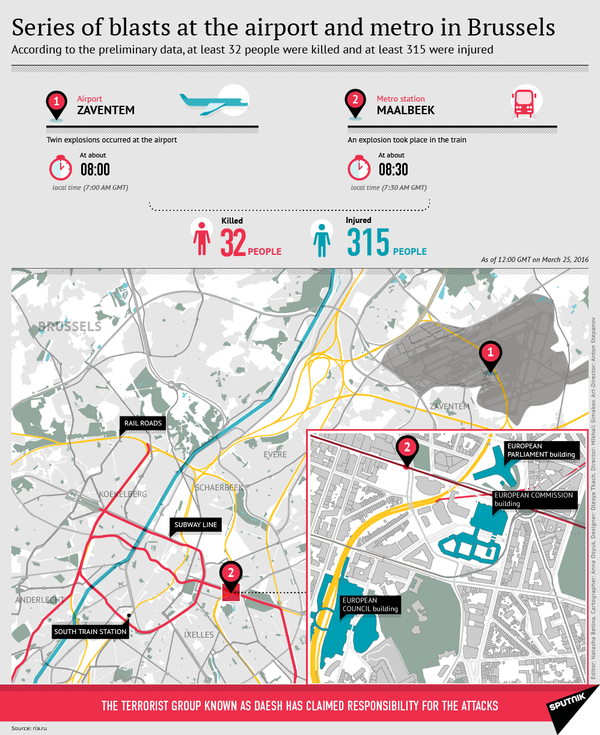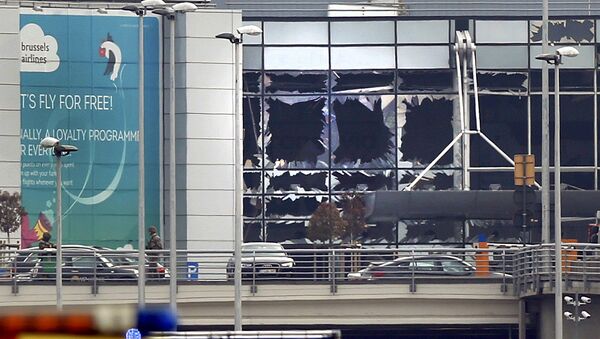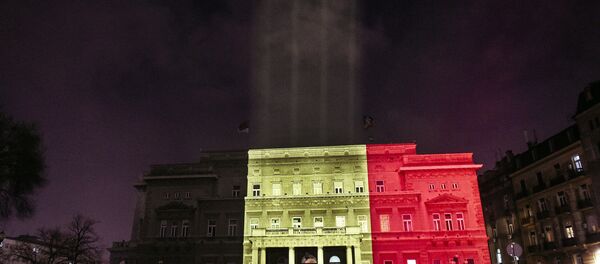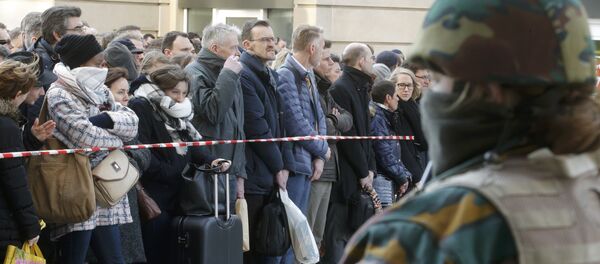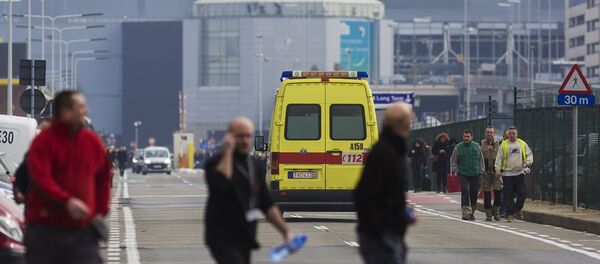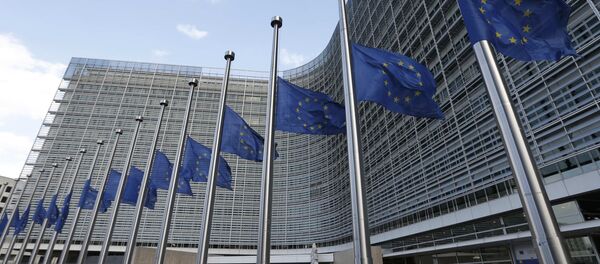In his article, published by the Portuguese daily newspaper Publico, Milhazes suggested that Tuesday's attacks were "a spit in the face of Europe and its values. Brussels was not only the location where one of the organizers of the Paris attacks was [recently] captured, but is also the capital of the European Union," which ostensibly had numerous counterterrorism measures in place prior to the attacks.
"Therefore, the main message of the terrorists, that 'we will act wherever and whenever we want', is clear, and means that the people of Europe can no longer feel themselves to be safe even in their own homes, in their rooms, in their bathrooms or in their bedrooms."
Now, the commentator suggests, is the time to "put aside political correctness" and to "coolly examine this case, to make serious conclusions, and to take real steps to fight this scourge." Otherwise, he warns, the attacks will continue and intensify.
"After such indescribable audacity and arrogance on the part of the terrorists, European leaders will once again turn to the promise of 'doing everything they can to protect our home, our principles', and so on. Thousands of people will take to the streets to signal their condemnation of terrorism, but then everyone will calm down until the next attack. And so on to infinity…"
The war on terrorism, Milhazes notes, is a "new kind of war, without frontlines, with an invisible or hidden enemy, but we must realize that this truly is a war, and that in order to win it, we need to search for new ways to fight it."
Simply bombing the terrorists is insufficient, the commentator argues; it is necessary to rethink both the strategy and tactics of this war.
First of all, "it's important to note that these attacks occur most commonly in those European countries and those cities that contain numerous Muslim communities, and this must be taken into account when it comes to the organization of the fight against terrorism."
"It was a big mistake," Milhazes laments, "to concentrate these communities into ghettos on the outskirts of large cities, where little has been done to integrate these people. Now, nothing else remains to be done except the long and costly job of 'separating the grain from the chaff', in order to allow people to sprout and to feel themselves at home, rather than in hostile territory."
At the same time, "in this context, it is necessary to stop quoting phrases from Voltaire that he did not write, and to prohibit the radicals' use of mosques, the internet, and other communication tools to propagate their ideas. Freedom of expression has its limits, and the security for citizens, in addition to respect for the freedoms of others, is one of those limits."
Taking a broader view, Milhazes notes that "on the global level, the major powers have a serious responsibility for solving these problems, since they are responsible for the destruction of state structures which, even if they were archaic, served to hold back terrorism, and for the creation of power vacuums which were quickly filled by radical forces."
In this regard, Milhazes is echoing the commentary of geopolitical analyst Marcus Papadopoulos, who told RT that the Brussels attacks were but another sign that Western countries need to rethink their foreign policy, from the support of 'moderate' jihadists in Afghanistan in the 80s, and Syria in the present, to military interventions in Iraq in Libya, which turned the latter into failed states.
"This issue is closely linked to the waves of refugees coming into Europe. In addition to urgent political and humanitarian measures, Europe must also make its contribution to resolving the conflicts which caused the flow of displaced persons in the first place. Without the provision of a minimum stability in the Middle East…it will be impossible to heal this wound. In this area, the European Union has demonstrated almost total failure."
Other measures against the fight, the commentator noted, must include a serious effort to cut off the channels of terrorists' finances. "Creating this kind of network would not be cheap." However, given the West's control over much if not most of the global financial network, Europe can readily turn to the existing legal mechanisms to dry up this flow of resources.
"And here we come back to the importance of fighting corruption on the global level. Many of these financial flows only exist because there are bankers, businessmen, corrupt politicians, and others who, in exchange for their millions, are ready to jeopardize the safety of their own countrymen. They must not be allowed to go unpunished, or to think that everything happens only to others, while they are the masters above it all."
Ultimately, Milhazes suggests, "many other proposals can be added to this list, but the main thing is that European citizens are aware that they are living through the greatest period of uncertainty since the Second World War, and that they realize that misfortunes will not only happen to their neighbors. Our principles, our way of life, our freedoms are under attack, and this affects the political right and the left equally."
